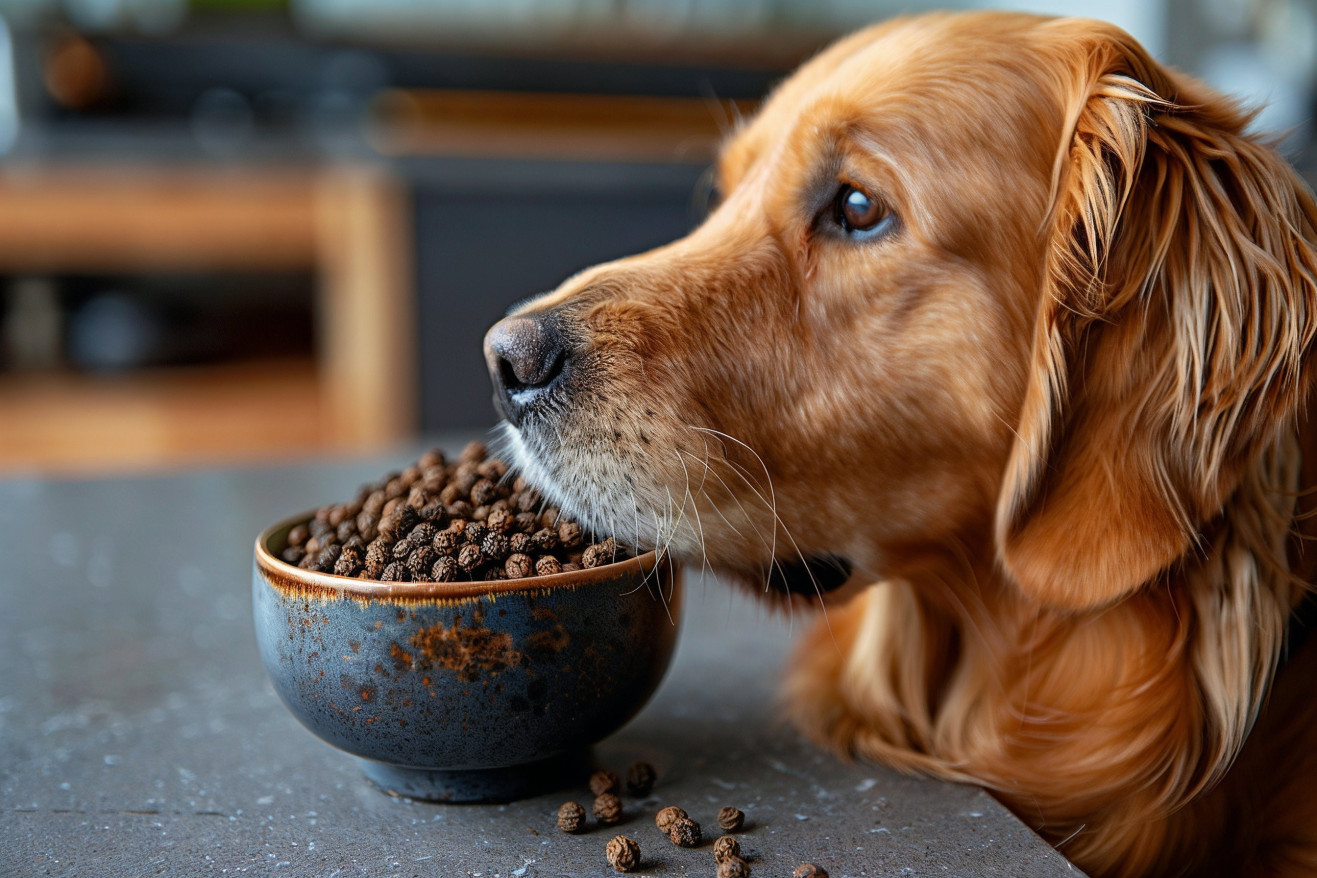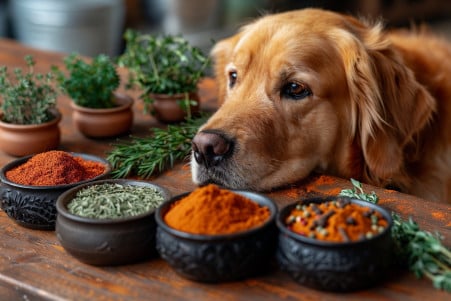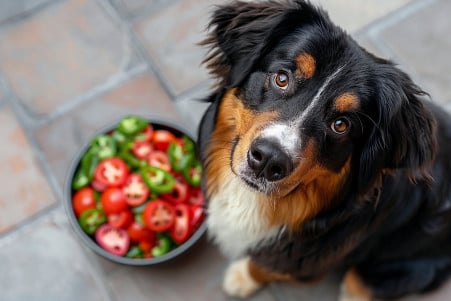Can Dogs Eat Black Pepper? The Good, the Bad, and the Spicy
26 April 2024 • Updated 25 April 2024

If you’ve been wondering whether or not you can share your love of black pepper with your dog, you’re not alone. There is a lot of conflicting information out there about whether or not black pepper is safe for dogs to eat. So, let’s take a closer look at the potential risks and benefits. While black pepper is not poisonous to dogs, it can lead to gastrointestinal issues, such as vomiting and diarrhea, if it’s consumed in large amounts. In small amounts, it may offer some anti-inflammatory and antioxidant benefits, but it’s still best to think of it as a seasoning rather than a superfood.
To make sure you get a complete picture, we’ll cover the findings of veterinary professionals, pet nutrition experts, and toxicology research. This will help you understand how black pepper can impact a dog’s digestive system and overall health, and how much is safe for them to eat. Armed with this knowledge, you can decide whether or not you want to let your dog enjoy black pepper or keep it away from them.
Is black pepper bad for dogs?
Potential Health Benefits and Risks of Black Pepper for Dogs
Although black pepper is not poisonous to dogs, it's helpful to know the potential benefits and risks of giving it to your dog. Black pepper has compounds like piperine and curcumin that have anti-inflammatory and antioxidant effects that can help with issues like arthritis, digestive problems, and even cognitive health in dogs, says The Canine Nutritionist. In addition, piperine can help the body absorb other compounds like curcumin from turmeric, which is often found in dog joint supplements.
That said, it's important to know that black pepper can also have negative effects if it's consumed in large amounts. According to Origin Labs, overeating black pepper can lead to gastrointestinal upset, respiratory irritation, and other problems. While small amounts may be OK, it's important to be careful and not overdo it when giving your dog black pepper.
It's always best to talk to your vet before you make any changes to your dog's diet. They can let you know how to use black pepper and other spices safely and effectively, consider any potential health risks, and make sure you're keeping your dog safe and healthy. With your vet's help, you can decide if you want to give your dog black pepper and do so in a way that minimizes the risks.
Recommended Safe Dosage and Moderation for Dogs Eating Black Pepper
Black pepper should be used in small amounts and with moderation when adding it to a dog's diet. Greg.app notes that while a little pinch here and there on dog-safe foods is not something to worry about, moderation is important because too much can lead to stomach or respiratory issues. The Canine Journal advises that you limit the amount of black pepper your dog eats because it doesn't have any real health benefits for dogs.
Dog Wonders World recommends a safe dosage of 1/8 to 1/4 teaspoon per 10 pounds of body weight per day. It's best to start with the lower amount and work your way up while watching for any negative side effects. It's also best to avoid heavily seasoned foods or meals with a lot of black pepper in them as they can lead to gastrointestinal irritation and other problems.
While black pepper may be safe in small amounts, it's important to be careful and talk to a vet before adding it to your dog's diet. Moderation is important to make sure you're keeping your dog safe and healthy.
Allergies to Black Pepper in Dogs
Although rare, some dogs may have an allergic reaction to black pepper or other spices. According to the London Allergy & Immunology Centre, symptoms of a black pepper allergy in dogs can include itching, sneezing, hives, and potentially anaphylaxis in severe cases. The report also notes that cross-reactivity has been reported between black pepper and other foods and pollens involved in the "Mugwort-Celery-Spice-syndrome."
If you suspect an allergy, Veterinary Skin & Ear recommends an elimination diet trial under veterinary supervision to identify the specific allergen. This is the most accurate way to diagnose a food allergy in dogs, as blood, hair, or saliva tests are not reliably accurate at this time.
How to Add Black Pepper to Your Dog's Diet: Recipes and More
One common way to add black pepper to a dog's diet is through golden paste, which is made from turmeric, black pepper, water, and coconut oil. The black pepper is included in the recipe because, as Oh My Dog! explains, it increases the bioavailability and absorption of the active ingredients in turmeric. Most golden paste recipes include only small amounts of black pepper, with about 1.5 teaspoons per batch.
If you're using black pepper in your own recipes for dog food or treats, the Holistic Actions! Forum recommends using it sparingly and not over-seasoning, as too much black pepper can potentially lead to gastrointestinal upset in dogs.
Conclusion: Black Pepper Should Be Used in Moderation for Dogs
Although not toxic, black pepper should be used in moderation for dogs because of the possibility of digestive issues and other negative side effects. While there may be some health benefits to feeding dogs small amounts of black pepper, it's not an essential nutrient for dogs.
Always check with a vet before adding black pepper or other spices to a dog's diet, especially if the dog has any health issues. And always watch for signs of an adverse reaction or allergy when introducing new foods or spices to a dog.


